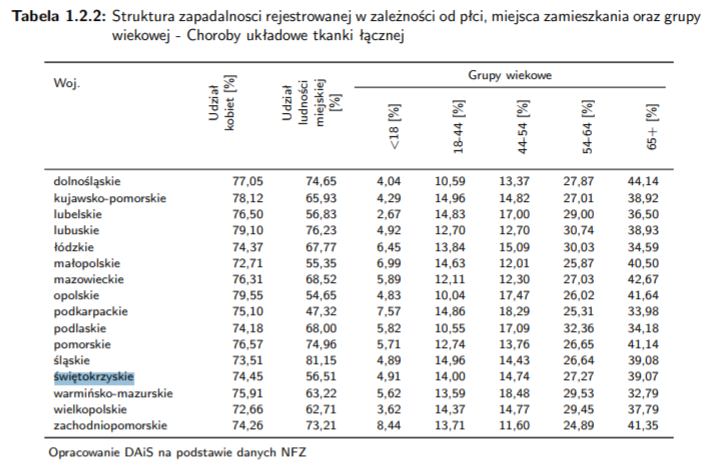How to scrape tables preceded with some title text from PDF? I am experimenting with tabulizer package. Here an example of getting a table from a specific page (Polish "Map of Public Health Needs")
library(tabulizer)
library(tidyverse)
options(java.parameters = "-Xmx8000m")
location<-"http://www.mpz.mz.gov.pl/wp-content/uploads/sites/4/2019/01/mpz_choroby_ukladu_kostno_miesniowego_woj_dolnoslaskie.pdf"
(out<-extract_tables(location, pages = 8,encoding = "UTF-8", method = "stream", outdir = getwd())[[4]] %>%
as.tibble())
This gets me one table at specific page. But I will have plenty of such pdfs to scrape, from the site: http://www.mpz.mz.gov.pl/mapy-dla-30-grup-chorob-2018/ and then subpages with many links for each illness, getting the links with rvest, for each province of Poland and I need to scrape tables after a specific title string eg.
Tabela 1.2.2: Struktura zapadalnosci rejestrowanej w zależności od płci, miejsca zamieszkania oraz grupy wiekowej - Choroby układowe tkanki łącznej"
I need to detect Tabela(...) Struktura zapadalnosci(...)", because the tables may not be at the same page. Many thanks for any directions and ideas in advance.
EDIT: After I asked the question I succeeded so far to find pages where the table might be, maybe very ineffective:
library(pdfsearch)
pages <-
keyword_search(
location,
keyword = c(
'Tabela',
'Struktura zapadalnosci rejestrowanej'
),
path = TRUE,
surround_lines = FALSE
) %>%
group_by(page_num) %>%
mutate(keyword = paste0(keyword, collapse = ";")) %>%
filter(
str_detect(keyword, "Tabela") &
str_detect(keyword, "Struktura zapadalnosci rejestrowanej")
) %>%
pull(page_num) %>%
unique()

